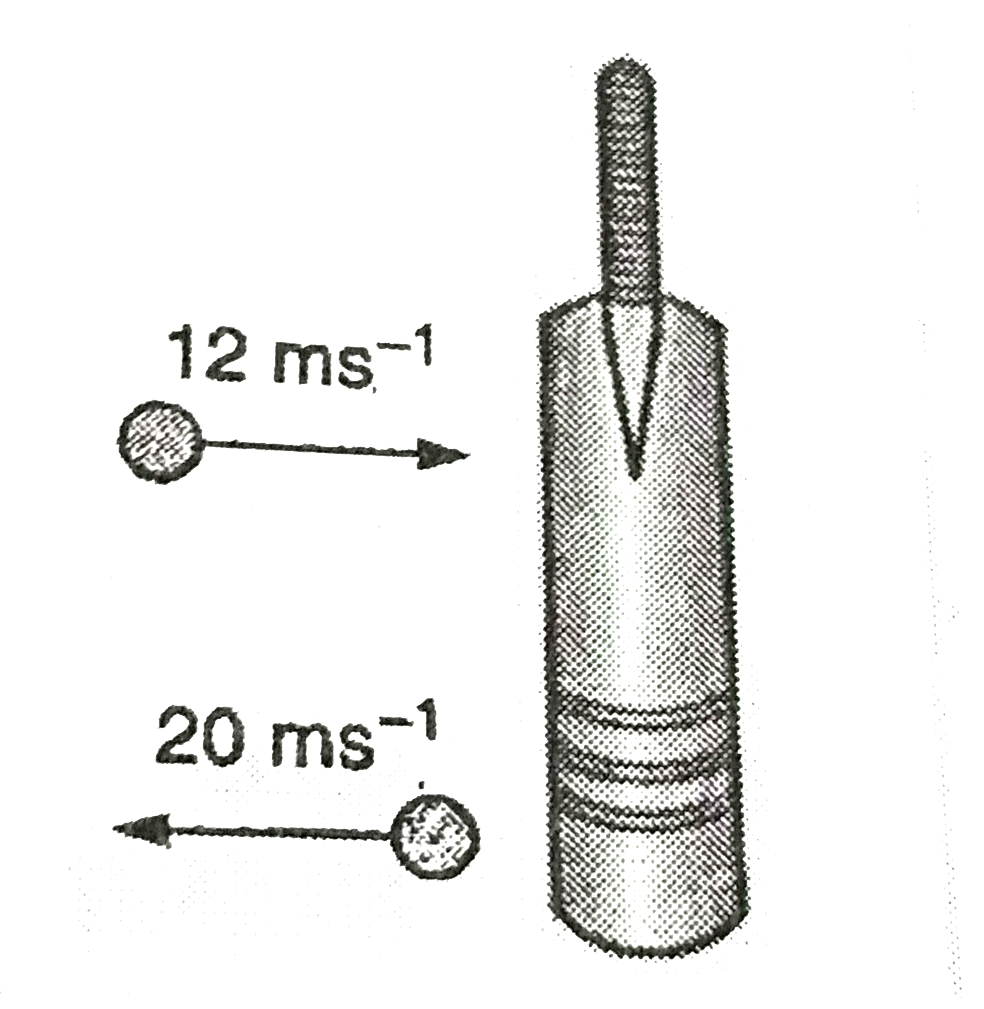A ball of mass 10g is initially moving with a velocity of 50ms−1 On applying a constant force a ball for 2.0s, it acquires a velocity of 70ms−1 calculate
the initial momentum of ball
To find the initial momentum of the ball, we can follow these steps:
Step 1: Identify the given values
- Mass of the ball (m) = 10 grams
- Initial velocity (V_initial) = 50 m/s
Step 2: Convert the mass from grams to kilograms
Since the standard unit of mass in physics is kilograms (kg), we need to convert grams to kilograms:
- 1 gram = 0.001 kg
- Therefore, 10 grams = 10 * 0.001 kg = 0.01 kg
Step 3: Use the formula for momentum
The formula for momentum (P) is given by:
P=m×V
Where:
- P is the momentum,
- m is the mass in kg,
- V is the velocity in m/s.
Step 4: Substitute the values into the formula
Now we can substitute the values we have into the momentum formula:
Pinitial=m×Vinitial
Pinitial=0.01kg×50m/s
Step 5: Calculate the initial momentum
Now we perform the multiplication:
Pinitial=0.01×50=0.5kg m/s
Final Answer
The initial momentum of the ball is:
Pinitial=0.5kg m/s
---
- Mass of the ball (m) = 10 grams
- Initial velocity (V_initial) = 50 m/s
Since the standard unit of mass in physics is kilograms (kg), we need to convert grams to kilograms:
- 1 gram = 0.001 kg
- Therefore, 10 grams = 10 * 0.001 kg = 0.01 kg
The formula for momentum (P) is given by:
P=m×V
Where:
- P is the momentum,
- m is the mass in kg,
- V is the velocity in m/s.
Now we can substitute the values we have into the momentum formula:
Pinitial=m×Vinitial
Pinitial=0.01kg×50m/s
Now we perform the multiplication:
Pinitial=0.01×50=0.5kg m/s
The initial momentum of the ball is:
Pinitial=0.5kg m/s
Topper's Solved these Questions
- FORCE AND LAWS OF MOTIONBOOK - MTG IIT JEE FOUNDATIONCHAPTER - FORCE AND LAWS OF MOTIONEXERCISE - SOLVED EXAMPLES
13 Videos
- FORCE AND LAWS OF MOTIONBOOK - MTG IIT JEE FOUNDATIONCHAPTER - FORCE AND LAWS OF MOTIONEXERCISE - NCERT SECTION
37 Videos
- FOOTSTEPS TOWARDS NEETBOOK - MTG IIT JEE FOUNDATIONCHAPTER - FOOTSTEPS TOWARDS NEETEXERCISE - Multiple Choice Question
45 Videos
- GRAVITATION BOOK - MTG IIT JEE FOUNDATIONCHAPTER - GRAVITATION EXERCISE - Olympiad/HOTS Corner
20 Videos
Similar Questions
A ball of mass 10g is initially moving with a velocity of 50ms−1 On applying a constant force a ball for 2.0s, it acquires a velocity of 70ms−1 calculate
the final momentum of ball
View SolutionA ball of mass 25 g, moving with a velocity of 2ms−1 is stopped within 5 cm. The average resistance offered to the ball is
View Solution
Knowledge Check
A ball of mass 0.2 kg moves with a velocity of 20m/sec and it stops in 0.1 sec , then the force on the ball is
A40 NB20 NC4 ND2 NAn object moving with a velocity of 50 ms−1 comes to rest after 20 s. What is its initial velocity ?
A0ms−1B50ms−1C60ms−1D10 ms−1A ball of mass 0.5 kg is moving with a velocity of 2ms−1. It if subjected to a force of x Newton for 2s. Because of this force, the ball moves with a velocity of 3ms−1 . The value of x is :
A5NB8.25NC0.25ND1N
A bicycle initially moving with a velocity 5.0 ms−1 accelerates for 5 s at a rate of 2 ms−2. What will be its final velocity?
View SolutionA ball of mass 0.1 kg is thrown against a wall. It strikes the wall normally with a velocity of 30 ms−1 and rebounds with a velocity of 20 ms−1. Calculate the impulse of the force exerted by the wall.
View SolutionA body of mass 10 kg initially at rest acquires velocity 10ms−1. What is the work done ?
View SolutionA ball of mass 1 kg moving with a velocity of 0.4 ms−1 collides with another stationary ball. After the collision, the first ball moves with a velocity of 0.3ms1 in a direction making an angle of 90∘ with its initial direction. The momentum of the second ball after the collision will be (in kg ms−1)
View SolutionA cricket ball of mass 150 g is moving with a speed of 12ms−1 and is hit by a bat so that the ball is turned back with velocity of 20ms−1 if duration of contact between bat and ball is 0.01 s then:

View Solution
